Profiles
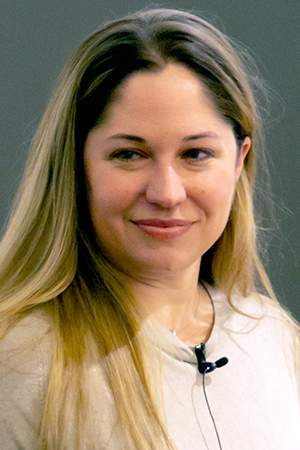
Caroline Albertin Marine Biological Laboratory, Woods Hole, MA
Dr. Caroline Albertin is a Hibbitt Fellow at Marine Biological Laboratory in Massachusetts. She earned her PhD at the University of Chicago in Organismal Biology and completed her post-doctoral research at the University of Chicago in the Department of Neurobiology. Her research focuses on octopuses as well as their cephalopod cousins, the squid and the cuttlefish and looking for genes responsible for their different features. Some of her awards include Marine Biology Laboratory of University of Chicago Graduate Student Research Award, the Cephalopod International Advisory Council Best Paper Award and Best Student Talk, Award for Excellence in Teaching at University of Chicago and the Abby Howe Turner Award for Biology at Mount Holyoke College.
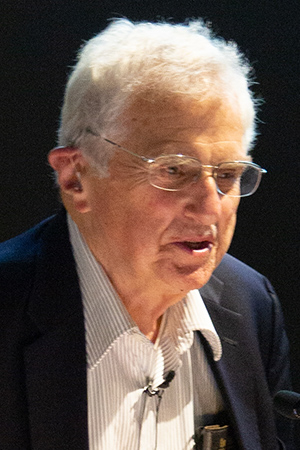
Bruce Alberts University of California, San Francisco, CA
Dr. Bruce Alberts is a biochemist with a strong commitment to improving the curriculum standards for science and mathematics education. He received his PhD at Harvard University in Biophysics and went on to serve as Editor-in-Chief of Science between the years of 2009 and 2013 as well as dedicating his time to serve as one of the first United States Science Envoys. He also completed two six-year terms as the President of the National Academy of Sciences before returning to take his place as the Chancellor’s Leadership Chair in Biochemistry and Biophysics for Science and Education at the University of California, San Francisco. In 2014, he was awarded the Medal of Science by Barack Obama as well as the 2016 Lasker-Koshland Special Achievement Award in Medical Science. He also holds 16 honorary degrees and serves on the advisory board for more than 25 non-profit institutions, including the Gordon and Betty Moore Foundation.

Donna G. Albertson New York University College of Dentistry, Bluestone Center for Clinical Research, New York
Dr. Donna Albertson received her PhD from Harvard University and completed her post-doctoral training at the Medial Research Council in Cambridge, UK. Dr. Albertson’s research includes studies in the areas of molecular cytogenetics, neuroanatomy and cancer using C. elegans, mice and human patients. She holds patents in microarray hybridization, printing and imaging technology and cancer biomarkers. Some of her awards include the 2nd Annual AACR Team Science Award and the AAAS Newcomb Cleveland Prize for her contributions to development of comparative genomic hybridization and array comparative genomic hybridization and assembly of the connectome of the C. elegans male tail, respectively. Her current research aims to investigate oral cancer and oral cancer pain using clinical research and preclinical models to study the reciprocal interactions between cancers and nerves to better understand how mediators from cancer evoke pain and how neurites innervating oral cancers benefit the cancer.

Samuel J. Aparicio BC Cancer Research Center, Vancouver, Canada
Dr. Samuel Aparicio is a University of Cambridge trained physician scientist leader in the fields of cancer genomics, cancer evolution, single cell biology, drug target credentialing and chemical biology. He is also the Head of Molecular Oncology at BC Cancer. His work on the molecular taxonomy if breast cancer led to identification of new genes that could change the way breast cancer is diagnosed, and form the basis of next-generation treatments. This discovery was preceded by another breakthrough in decoding the genetic makeup of the most-deadly form of breast cancer, triple negative subtype. He collaborates with other groups, current projects include the genomic and biochemical analysis of lymphoma, ovarian cancer, and several rare pediatric cancers. He was the co-founder of Paradigm Therapeutics (now, Takeda Cambridge) and currently Canexia Health.
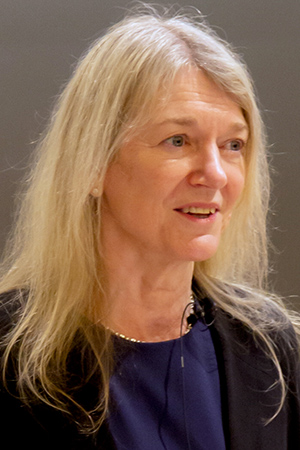
Cori Bargmann The Rockefeller University, New York, New York; Chan Zuckerberg Initiative, Redwood City, CA
Dr. Cori Bargmann is a neurobiologist known for her work on the genetic and neural circuit mechanisms of behavior using C. elegans, particularly the mechanisms of olfaction in the worm. She is a faculty member in the David Rockefeller Graduate Program and the Tri-Institutional MD-PhD Program. She earned her PhD from Massachusetts Institution of Technology in the department of Biology where she examined the molecular mechanisms of oncogenesis and helped identify the role of Ras in bladder cancer. She also did significant work on neu, an oncogene that later led to significant treatments in breast cancer. She then completed her post-doctoral work at Massachusetts Institute of Technology, working on molecular biology mechanisms of neuroscience. She began working on chemosensory behavior in C. elegans and achieved several breakthroughs, demonstrating, among other things, that nematodes have a sense of smell.
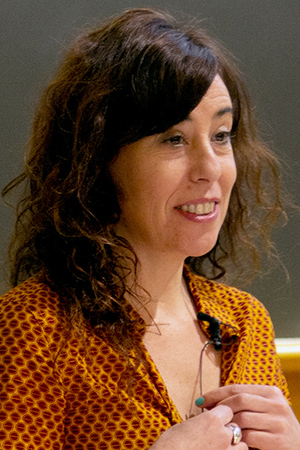
Arantza Barrios University College London, London, UK
Dr. Arantza Barrios earned her PhD in Developmental Biology from University College London in 2002. She did post-doctoral research at the MRC Laboratory for Molecular Cell Biology, Albert Einstein College for Medicine, and Rutgers University. She now serves as an Associate Professor in Neurobiology at University College London. Her laboratory studies the mechanisms that provide neural circuits with functional plasticity. Specifically, she uses C. elegans and combines behavioral genetic screens, GCaMP recordings and optogenetics to dissect, at the molecular and single cell level, how complex, integrative behavioral decisions arise from the dynamic properties of neural circuits.
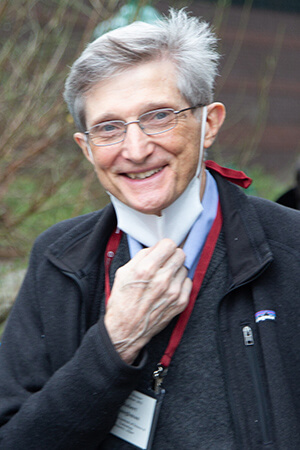
Robert Baughman Okinawa Institute of Science and Technology, Okinawa, Japan
Dr. Robert Baughman received his PhD in chemistry from Harvard University and then moved to the Neurobiology Department at Harvard Medical School, where he became a professor. His research focused on chemical signaling between nerve cells. He left the laboratory to accept a position as a senior research executive at the Neurology Institute at the National Institutes of Health. Here, he led many initiatives to introduce new technologies and the establish shared resources supporting basic science and the development of new treatments for neurological disorders. Due to his world-leading academic and administrative experience at Harvard University and the National Institutes of Health, Dr. Baughman became an obvious candidate to Dr. Sydney Brenner to bring aboard as a member of the team at Okinawa Institute of Science and Technology Promotion Corporation, the precursor to the university. Following the accreditation of OIST School Corporation and Graduate University, Dr. Baughman served as Provost and Vice-CEO.
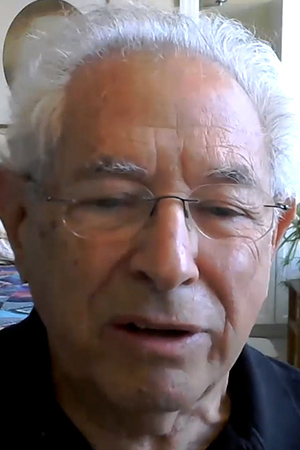
Tom Blumenthal University of Colorado, Boulder
Dr. Tom Blumenthal received his BA in Biology from Antioch College in 1966. He then went on to complete his PhD in Genetics at The John Hopkins University in 1970, during which time he was also an NSF Fellow. He conducted his post-doctoral research at Harvard University between 1970 and 1973 with James Watson. Once he completed his postdoctoral research, he accepted a position in the Biology Department at Indiana University Bloomington where he stayed for 23 years. In 1997, he moved to the University of Colorado School of Medicine in Denver, Colorado. In 2006, he became Professor and Chair in the Molecular, Cellular and Developmental Biology department at the University of Colorado at Boulder. In 2012, Dr. Blumenthal became Executive Director of Linda Crnic Institute for Down Syndrome. In 2010, he was elected for membership into the American Academy of Arts and Sciences.

Roger Brent Fred Hutchinson Cancer Research Center, Seattle, WA
Dr. Roger Brent is a biologist known for his work on gene regulation and systems biology. He studies the quantitative behaviors of cell signaling and the origins and consequences of variation in them. He is a Full Member in the Division of Basic Sciences and Division of Public Health Sciences at Fred Hutchinson Cancer Research Center as well as an Affiliate Professor of Genome Sciences at the University of Washington. He completed his PhD and post-doctoral work in Biochemistry and Molecular biology at Harvard University. He also created and led the Center for Biological Futures to help foster a better understanding of the impact of biological research progress on our lives. The goal of this think tank was to improve understanding of the global impact of biological research progress, including how advances in biology are shaping 21st century human affairs. In 2011 he was named a Fellow of the American Association for the Advancement of Science for outstanding contributions in the area of biochemistry, transcription, genomics, and systems biology.

Martin Chalfie Columbia University, New York
Dr. Martin Chalfie is a University Professor at Columbia University and the recipient of the 2008 Nobel Prize in Chemistry for the discovery and development of the green fluorescent protein. He holds a PhD in Neurobiology from Harvard University and conducted his post-doctoral research at the Laboratory of Molecular Biology with Sydney Brenner. Here he studied the neural circuits for touch sensitivity in C. elegans. He then left the Laboratory of Molecular Biology to take a faculty position at Columbia University in the Department of Biological Sciences and continued to study C. elegans touch mutants. He also is a NAS member, American Academy member, and Foreign Member of the Royal Society.
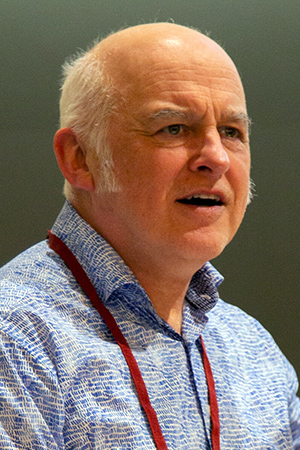
Matthew Cobb University of Manchester, Manchester, UK
Dr. Matthew Cobb is a Professor of Zoology at the University of Manchester where his research focuses on the sense of smell, insect behavior and the history of science. He has also written several books, including The Egg and Sperm Race and is regularly featured in articles in The Guardian and New Scientist. He is also the recipient of the Ballie Gifford prize for Non-Fiction. Cobb can also be frequently heard on BBC radio programs commenting on genetics. He got his PhD at University of Sheffield in Psychology and Genetics, looking at the mating behavior of fruit flies.
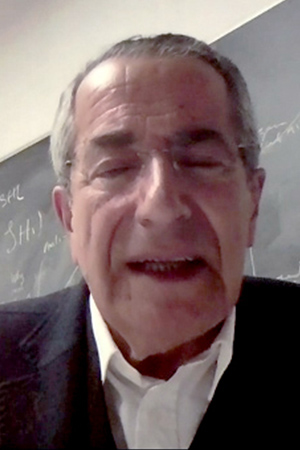
Antonio Coutinho Instituto Gulbenkian de Ciencia, Oeiras, Portugal
Antonio Coutinho is an accomplished Portuguese immunologist. He was the director of the Instituto Gulbenkian de Ciencia from 1998 to 2012 and he created Portugal´s first international PhD Program in 1993. He is also the Chair of The PGCD Advisory Board. The PGCD, Graduate Program Science for Development, is an innovative advanced training program that helps prepare African and East Timorese students to pursue a scientific career and trains a new generation of University professors.
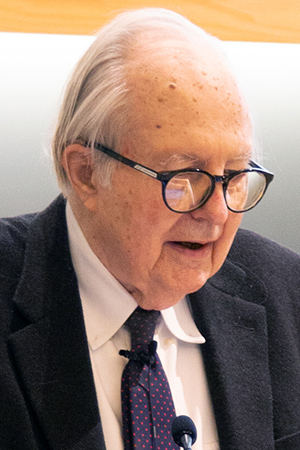
James E. Darnell, Jr. The Rockefeller University, New York
James Darnell is a biologist and author of the cell biology textbook Molecular Cell Biology. He has made significant contributions to RNA processing and cytokine signaling. The Darnell laboratory studies how signals from the cell surface affect the transcription of genes in the nucleus. Darnell received his MD from the Washington University School of Medicine. His career has included research at the National Institute of Allergy and Infectious Diseases; at the Pasteur Institute in Paris; and academic appointments at the Massachusetts Institute of Technology, the Albert Einstein College of Medicine, and Columbia University. In 1974, he joined Rockefeller as Vincent Astor Professor, and from 1990 to 1991 he was vice president for academic affairs. He is the recipient of numerous awards including the 1986 Canada Gairdner Foundation International Award, the 1994 Paul Janssen Prize in Biotechnology and Medicine, the 1997 Passano Award, the 2002 Albert Lasker Special Achievement Award in Medical Science, the 2002 National Medal of Science and the 2012 Albany Medical Center Prize in Medicine and Biomedical Research

Richard Durbin University of Cambridge and Wellcome Sanger Institute, Cambridge, UK
Dr. Richard Durbin is a computational biologist. He is a Professor of Genetics at the University of Cambridge and an Associate Faculty member at the Wellcome Sanger Institute. He is involved in a wide variety of genomic genetics projects from a computational and mathematical perspective. In the past, Dr. Durbin has led a number of large-scale genomics projects, including the 1000 Genomes Project and UK10K, both of which were completed in 2015. He also helped develop a number od reference genomic databases including WormBase for C. elegans biology which he studied while working as a staff member and junior group leader at the MRC Laboratory of Molecular Biology as well as while working on his PhD.

Sam Eletr Rhythm Diagnostic Systems, San Francisco
Dr. Eletr was a co-founder and first CEO of Applied Biosystems, Inc., whose DNA sequencers first enabled the sequencing of the human genome. He holds a PhD in Biophysics from the University of California, Berkeley and collaborated for many years with Sydney Brenner. Dr. Eletr has 40 years of experience as manager and investor. As a serial entrepreneur, he has been the founder of several major successes such as Applied Biosystems, Lynx Therapeutics, Compass Genetics and Andrew Alliance. He currently serves as the Strategic Committee Chairman for Rhythm Diagnostic Systems, a medical device company aiming to bring the first miniaturized and connected wearable medical strip for real-time monitoring of several key cardiac and respiratory parameters.
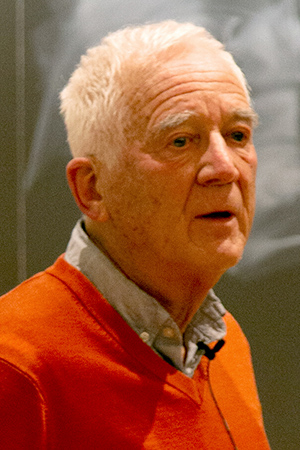
Scott W. Emmons Albert Einstein College of Medicine, Bronx, NY
Dr. Scott Emmons received his PhD from Stanford University in Biochemistry after attending Harvard University and studying Biology. He is currently a professor at Albert Einstein College of Medicine in the Department of Genetics and Department of Neuroscience. He also serves as the Siegfried Ullmann Chair in Molecular Genetics. His areas of research include understanding how the synaptic connections in the nervous system are genetically encoded based on EM reconstructions of synaptic connectivity in C. elegans.

Philip Goelet Red Abbey LLC, Baltimore, Maryland
Dr. Philip Goelet is a scientist, entrepreneur and investor. He is one of the founding members of Red Abbey Venture Partners. After completing his PhD at the Laboratory of Molecular Biology at the University of Cambridge, he worked as a post-doctoral student on learning and memory at Columbia University. Dr. Goelet has co-authored over 40 publications and holds patents with concentrations in the fields of molecular biology, neuroscience, nucleic acid chemistry, virology, drug discovery and genomics. He co-founded Acidophil, LLC, an intellectual property holding company that deals in overseeing the development of technology invented by himself, Dr. Sydney Brenner and a group of other scientific associates.

Balázs Gulyás Nanyang Technological University, Singapore, Singapore; Karolinska Institute, Stockholm, Sweden
Balazs Gulyas is a Professor in the School of Medicine at Nanyang Technological University. Prior to this position, he spent most of his academic career at the Karolinska Institute in Stockholm, Sweden. He earned his MD degree at Semmelweis University and continued his education to obtain his PhD in Neuroscience at the Catholic University of Leuven, Belgium. He conducted his post-doctoral studies at the Karolinska Institute and at the University of Oxford in the Department of Experimental Psychology. Dr. Gulyas has made significant contributions to the field of functional brain mapping with positron emission tomography with special regard to the localization of cortical areas in the human brain related to visual perceptual functions, visual memory and imagery, olfactory and pheromone-sense functions. He is a member of the Academy of Europe, the Hungarian Academy of Sciences and the Royal Belgian Academy of Medical Sciences.

Christopher M. Hammell Cold Spring Harbor Laboratory, NY
Dr. Christopher M. Hammell is an Associate Professor and Molecular Geneticist at Cold Spring Harbor Laboratory. He received his BS in Biochemistry from the University of Georgia in Athens, Georgia in 1995 and continued his studies at Dartmouth Medical School where he received his PhD. He was awarded the honor of Rita Allen Foundation Scholar in 2012. His research interests include temporal cell fate specification during development and how changes in timing of gene expression contribute to diseases like cancer.

Gal Haspel New Jersey Institute of Technology and Rutgers University, Newark, NJ
Dr. Gal Haspel is an Assistant Professor in the Department of Biological Sciences at New Jersey Institute of Technology. He received his BS in Cell and Animal Physiology from Ben-Gurion University of the Negev in Be’er-Sheva, Israel where he graduated first in his class. He remained at Ben-Gurion University of the Negev for his PhD where he completed research in the biochemistry and physiological action of Ampulex Compressa venom on cockroach prey. In 2003, he was a Grass Foundation Research Fellow at the Marine Biological Laboratory in Massachusetts. From 2007 to 2009, he served as Associate Director of the Grass Laboratory. He is the recipient of a number of awards including, but not limited to, Excellence in Teaching Award from the students of Albert Dorman Honors College at New Jersey Institute of Technology and the Excellence Award from Zlotowski Center for Neuroscience. He is also a member of the Genetics Society of America, the Society for Neuroscience and the International Society for Neuroethology.

Michael Hayden University of British Columbia, Vancouver, Canada
Dr. Michael Hayden is a scientist, physician, and entrepreneur. He is the CEO of Prilenia Therapeutics and a Killam Professor at the University of British Columbia, the highest honor that the University can confer on a member of faculty. It recognizes exceptional members of faculty who are extraordinary teachers, researchers, leaders in their academic fields, and who have received national and international recognition. Dr. Hayden is the co-founder of five biotechnology companies including NeuroVir, Xenon, Aspreva, 89bio and Prilenia. He was induced into the Canadian Medical Hall of Fame in 2017 and was awarded the Order of Canada in 2010 and Order of British Columbia in 2009. He has also recently been named on of the fifty Canadians born in the 20th century who have changed the world.
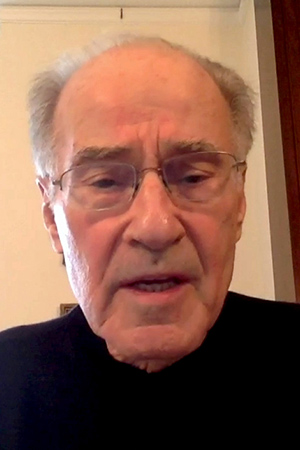
David Hirsh Columbia University, New York
Dr. David Hirsh has served in academic, entrepreneurial and executive roles for several decades. Dr. Hirsh is a professor in the Department of Biochemistry and Molecular Biophysics in the College of Physicians and Surgeons of Columbia University, where he also served as department chairman and subsequently was appointed Columbia University’s first executive vice president for research. Dr. Hirsh serves as chairman of the board of the New York Structural Biology Center, as a member of the board of directors of the Agouron Institute and as a trustee emeritus of the Rockefeller University. Previously, Dr. Hirsh worked as the Executive Vice President and Director of Research at Synergen Inc., served as the Chairman of Life Sciences Advisory Board at Warburg Pincus LLC., and participated as a Board Member of several biotechnology companies. Dr. Hirsh earned a Ph.D. in Biochemistry from the Rockefeller University. He completed his post-doctoral fellowship at the MRC Laboratory of Molecular Biology in Cambridge, UK.
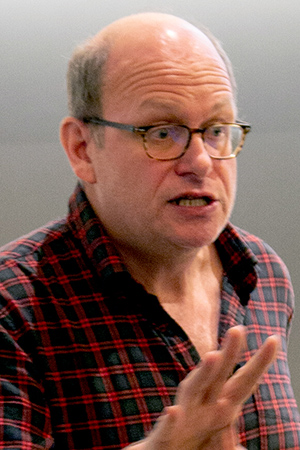
Oliver Hobert Columbia University, HHMI, NY
Dr. Oliver Hobert is a Professor in the Columbia University Department of Biochemistry and Molecular Biophysics and an Investigator of the Howard Hughes Medical Institute, and holds an Interdisciplinary Faculty position in the Department of Systems Biology. His laboratory studies the molecular mechanisms responsible for generating the diversity of cell types found in the nervous system. He has obtained his Diploma degree in Biochemistry at the University of Bayreuth in Germany, and his PhD at the Max Planck Institute for Biochemistry in Martinsried. He started to work on C. elegans as a post-doctorate at Massachusetts General Hospital and Harvard Medical School. His laboratory investigates various aspects of nervous system development and function in C. elegans.
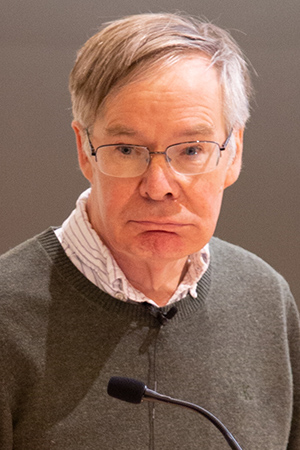
Jonathan Hodgkin University of Oxford, Oxford, UK
Dr. Jonathan Hodgkin graduated from University of Oxford and went on to complete his PhD at the Laboratory of Molecular Biology at the University of Cambridge with Dr. Sydney Brenner. Here he studied behavioral genetics in C. elegans. After doing his post-doctoral work at Stanford University, he returned to the Laboratory of Molecular Biology as a staff member. In 2000, he moved to University of Oxford as a Professor of Genetics in the Department of Biochemistry. He has acted as the curator of the C. elegans genetic map and gene nomenclature and served as the President of the Genetics Society of Great Britain between 2003 and 2006.

Shawn Hoon A*STAR, Singapore
Dr. Shawn Hoon is a scientist and entrepreneur who is currently serving as Adjunct Associate Professor at NUS Yong Loo Lin School of Medicine in Singapore and Chief Innovative Officer at Automera and Talo Labs. Talo Labs works in emerging therapeutics, platforms and in silico technologies and Automera is a therapeutic platform that leverages autophagy to degrade proteins and other disease-causing targets. Dr. Hoon is the co-founder of Protena which is a company that develops cutting edge tools for studying single cell biology. In 1999, Dr. Hoon earned his BS in Electrical Engineering with a minor in Computer Engineering from University of Virginia. In 2008, he received his PhD in Genetics from Stanford University. He began as a scientist at A*STAR in 2009 and by 2020 he worked his way up to Director of the Molecular Engineering Laboratory at the Institute of Bioengineering and Nanotechnology. He was a part of the Fugu Genome Project that was initiated by Dr. Sydney Brenner and led by Dr. Sam Aparicio and Dr. Byrappa Venkatesh.

Tim Hunt Okinawa Institute of Science and Technology, Okinawa, Japan
Dr. Tim Hunt is a biochemist and molecular physiologist. He was awarded the Nobel Prize in Physiology or Medicine in 2001 for his discovery of protein molecules that control the division of cells. Through studies of sea urchins in the early 1980s, Dr. Hunt discovered proteins that are broken down during different phases of the cell cycle and that have important functions in its control. He received his PhD from the University of Cambridge. He is a member of the European Molecular Biology Organization and some of his other awards and honors include the Fellowship of the Royal Society, the Fellowship of the Academy of Medical Sciences, the Fellowship of the Royal Society of Edinburgh, the Royal Medal and the title of Knight Bachelor.
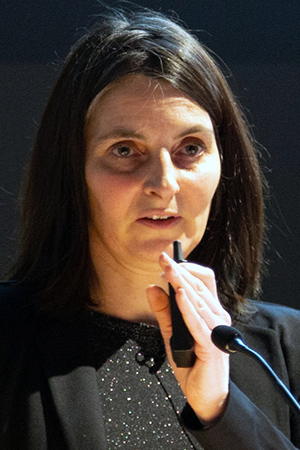
Sophie Jarriault IGBMC, Strasbourg, France; INSERM U1258, Strasbourg, France
Dr. Sophie Jarriault earned her PhD in Molecular Biology from the University of Paris VI, Pasteur Institute, France. She conducted her post-doctoral work at Columbia University, Howard Hughes Medical Institute on vulva organogenesis in C. elegans. She is now a group leader for the Institut de Genetique et de Biologie Moleculaire et Cellulaire in Strasbourg. Sophie Jarriault is interested in the process by which a specialized cell, with a well-established identity, can in some circumstances erase it and adopt a different fate. She studies why it happens to some cells and not their neighbors, and how the process is initiated and regulated. This basic research has implications for our ability to therapeutically manipulate cell fate.

Jonathan Karn CWRU School of Medicine, Cleveland, Ohio
Dr Karn is an internationally-recognized virologist who has made seminal contributions to the study of transcriptional control in HIV. Dr Karn’s current research focuses on epigenetic control mechanisms that regulate HIV transcription and latency in T-cells and microglial cells. Understanding these mechanisms is central to current efforts to induce or suppress latent viruses as part of an HIV eradication strategy. He serves as a Professor and Chair for the Department of Molecular Biology and Microbiology in the School of Medicine, the Director for the Case Center for AIDS Research, and Professor in the Department of Biochemistry in the School of Medicine. Dr Karn was elected a Fellow of the American Academy of Microbiology in 2011.
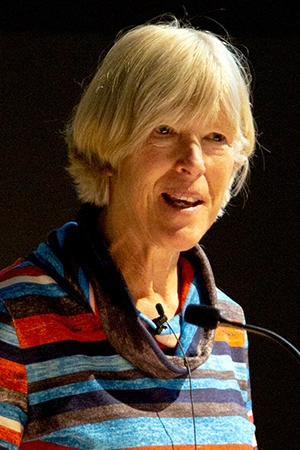
Cynthia J. Kenyon Calico Life Sciences, South San Francisco, CA
Dr. Cynthia Kenyon graduated valedictorian in chemistry from the University of Georgia. She earned her Ph.D. from the Massachusetts Institute of Technology and was a post-doctoral fellow with Dr. Sydney Brenner in Cambridge, England. In 1986, she joined the faculty of the University of California at San Francisco where she became the Herb Boyer Distinguished Professor and an American Cancer Society Professor, before joining Calico in 2014. Dr. Kenyon is a member of the U.S. National Academy of Sciences, the National Academy of Medicine and the American Academy of Arts and Sciences, and she is a former president of the Genetics Society of America.
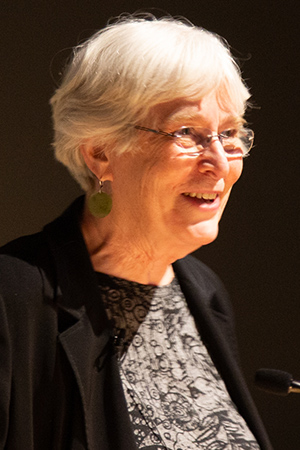
Judith Kimble HHMI / University of Wisconsin, Madison
Dr. Judith Kimble is a Professor of Biochemistry, Molecular Biology, Medial Genetics and Cell and Regenerative Biology at the University of Wisconsin-Madison. She also was an Investigator with the Howard Hughes Medical Institute. She received her PhD from the University of Colorado, Boulder where she studied the molecular biology of model organism C. elegans. Dr. Kimble conducted her post-doctoral research at the MRC Laboratory of Molecular Biology in Cambridge. Dr. Kimble’s research focuses on the molecular regulation of animal development. She was elected to the American Academy of Arts and Sciences and the American Philosophical Society. She also is a member of the National Academy of Sciences.
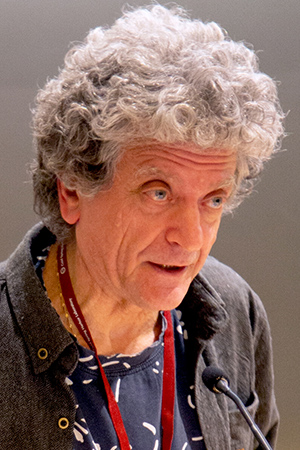
Conrad P. Lichtenstein Nemesis Bioscience Ltd, Cambridge, UK
Following a PhD in Molecular Biology under Dr. Sydney Brenner at the MRC Laboratory of Molecular Biology in Cambridge, Dr. Conrad Lichtenstein held a post-doctoral position at the University of Washington, Seattle. After this, he took a faculty position at Imperial College London, followed by an appointment as Professor of Molecular Biology at Queen Mary, University of London. His research has included gene targeting in plants by homologous recombination, RNAi engineering for virus resistance in transgenic plants and transposition by DNA elements spreading antibiotic resistance in bacteria. In 2014, he co-founded Nemesis Bioscience, a biopharmaceutical start-up company developing DNA therapeutics to be administered before antibiotics to inactivate resistance in bacterial pathogens.

Seng Gee Lim National University Hospital, Singapore
Professor Seng Gee Lim is Director of Hepatology at the Division of Gastroenterology and Hepatology, National University Health System, Singapore, and was previously Chief of Division. He graduated in 1980 from Monash Medical School and completed his research MD at the Royal Free Hospital. His research includes clinical trials of new treatments for chronic hepatitis B and C, and translational research in viral hepatitis, involving molecular biology and immunology of hepatitis B in 2018, Dr. Seng Gee Lim was awarded the National Medical Research Council Clinician Scientist Award for his research in hepatitis B virus.

Susan E. Mango University of Basel, Basel, Switzerland
Dr. Susan Mango studied biochemistry as an undergraduate at Harvard University. She received a PhD in molecular biology from Princeton University, where she worked with Michael Cole. Susan was a postdoctoral fellow with Judith Kimble at the University of Wisconsin-Madison/HHMI. She was the HA and Edna Benning Professor of Oncological Sciences at the Huntsman Cancer Institute in Salt Lake City before moving to Harvard University in 2009. She relocated to the University of Basel in 2019. Her awards and fellowships include the Helen Hay Whitney Fellowship, the MacArthur Fellowship, Harland Winfield Mossman Developmental Biologists Award, and the NIH Method to Extend Research in Time Merit.

G. Steven Martin University of California, Berkeley, CA
Dr. Steven Martin is a biochemist who studies the signaling mechanisms associated with cell growth, division and migration. In particular, he looks at how signaling pathways influence the malignant transformation of cells, during the development of cancer. He serves as a Professor of Cell and Developmental Biology in the Department of Molecular and Cellular Biology at the University of California, Berkeley as well as the Dean of Biological Sciences from 2011 to 2016. From 2002 to 2007 he was the Richard and Rhoda Goldman Distinguished Professor of Cell and Developmental Biology. Honors include a John Simon Guggenheim Memorial Foundation Fellowship and election as a Fellow of the Royal Society. He received his PhD from University of Cambridge, UK in Molecular Biology.
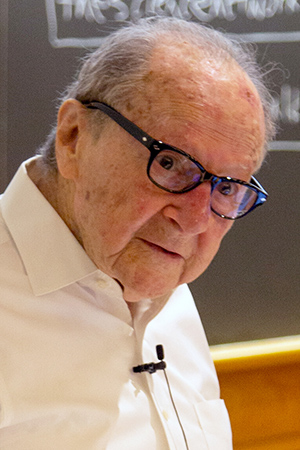
Matt Meselson Harvard University, Cambridge, MA
Dr. Matthew Meselson is a molecular biologist notable for his experimental confirmation of the Watson-Crick theory of the structure and method of replication of DNA. In addition, along with Dr. Sydney Brenner and Francois Jacob, he discovered the existence of messenger RNA. Dr. Meselson has investigated DNA repair in cells and how cells recognize and destroy foreign DNA, and, with Werner Arber, was discovered restriction enzymes. After Dr. Meselson earned his PhD from the California Institute of Technology in Pasadena, he became a Professor of the Natural Sciences at Harvard University. Dr. Meselson has received the Award in Molecular Biology from the National Academy of Sciences, the Public Service Award of the Federation of American Scientists, the Presidential Award of the New York Academy of Sciences, the 1995 Thomas Hunt Morgan Medal of the Genetics Society of America, as well as the Lasker Award for Special Achievement in Medical Science.
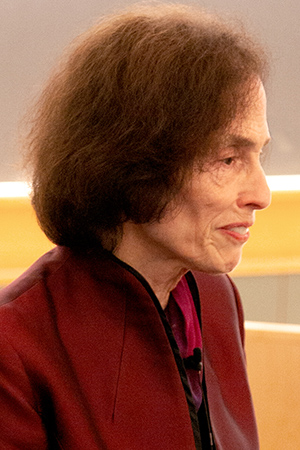
Barbara Meyer HHMI / University of California, Berkeley
Dr. Barbara Meyer is a genetics, genomics and development professor in the molecular and cell biology department at University of California, Berkeley. She also serves as an adjunct professor in the biochemistry and biophysics department at University of California, San Francisco’s School of Medicine and an HHMI investigator. Dr. Meyer completed her undergraduate studies at Stanford University and began her PhD at University of California, Berkeley. She finished her studies at Harvard University. During her post-doctoral work, she researched how chromosomes determined sex of C. elegans at the Cambridge University Laboratory of Molecular Biology with Dr. Sydney Brenner.
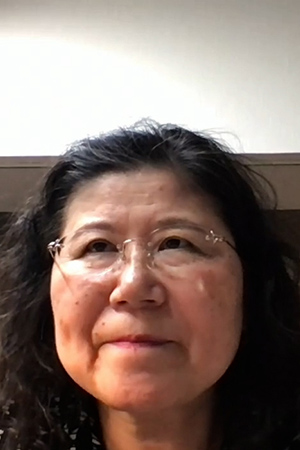
Ikue Mori Nagoya University, Nagoya, Japan
Dr. Ikue Mori is known for her work on molecular, cellular and neural circuit analyses of thermotaxis behavior in C. elegans. She is Director of Neuroscience Institute and Professor of Molecular Neurobiology of the Graduate School of Science in Nagoya University. In 2013, Dr. Ikue Mori became the first woman to receive the Tokizane Award, the most prestigious neuroscience award in Japan, and in 2017 was awarded the Medal of Honor with Purple Ribbon. She graduated from Ochanomizu University, Japan, in 1980 with a B.S. in Biology. While she was a M.S. student majoring in population genetics in Ochanomizu University, she studied theoretical biology and evolution in University of Sussex, UK. She joined the Biology and Biomedical Science Program in Washington University in St. Louis, where she studied genetics in C. elegans.
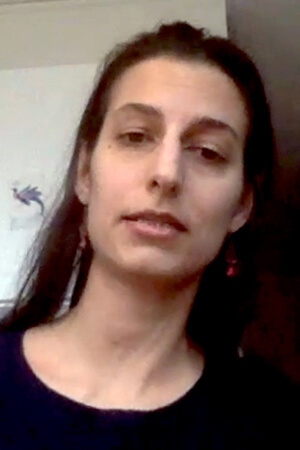
Carina F. Mugal Uppsala University, Uppsala, Sweden
Dr. Carina Farah Mugul’s research interests include understanding patterns of molecular evolution, such as genomic signatures of natural selection, mutation bias and GC-biased gene conversion. In particular, she focuses on variation in these patterns among species, across the genome and among different functional elements. She completed her PhD studies in evolutionary genetics at Uppsala University, Sweden, continued her post-doctoral research there, and now holds a position as a researcher in the Department of Ecology and Genetics.
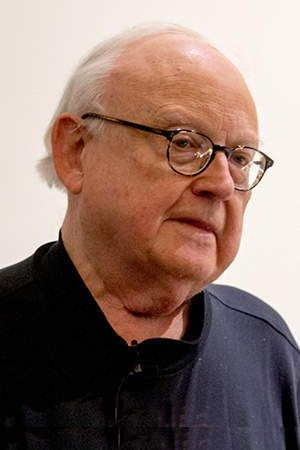
Thoru Pederson University of Massachusetts Medical School, Worcester
Dr. Thoru Pederson received his Ph.D. in Zoology from Syracuse University and was a NIH postdoctoral fellow in the Department of Cell Biology at Albert Einstein College of Medicine. He then joined the Worcester Foundation as a Staff Scientist in Cell Biology and was promoted to President of the institute in 1985. In 1997 the Worcester Foundation merged with UMass Medical School. Dr. Pederson holds the Vitold Arnett Professorship, an endowed position, and is also Associate Vice Provost for Research. He has been awarded the Wilhelm Bernhard Medal and also the Medal of Charles University, Prague, for his research in the cell nucleus. He attended Syracuse University for both his BA and PhD in Zoo Biology and Cell Biology, respectively. He was elected to the American Academy of Arts and Sciences in 2020.

Keith Peters University of Cambridge, UK
Keith Peters graduated in Medicine from the Welsh National School of Medicine in 1961. After posts in the University of Birmingham, the National Institute for Medical Research at Mill Hill and the Welsh National School of Medicine, he was appointed Lecturer in Medicine and Consultant Physician at the Royal Postgraduate Medical School (RPMS), Hammersmith Hospital. Between 1969 and 1975 he was successively Lecturer in Medicine, Lecturer in Medicine and Immunology, and Reader in Medicine, before being appointed Professor of Medicine and Director of the Department of Medicine at the Royal Postgraduate Medical School in 1977. In 1987, Dr. Keith Peters became Regius Professor of Physics in the University of Cambridge and head of the School of Clinical Medicine.
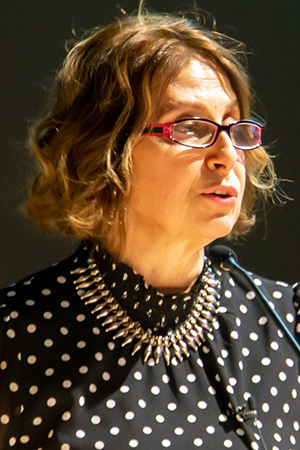
Ludmila Pollock Cold Spring Harbor Laboratory, NY
Ludmila (Mila) Pollock is the Executive Director of the Library & Archives at Cold Spring Harbor Laboratory (CSHL). She has led the Library & Archives since 1999, as well as the Genentech Center since 2006. The CSHL Library is a state-of-the-art library whose mission is to serve the research needs of the international scientific community at CSHL. The CSHL Archives is internationally recognized for building and promoting extensive collections of original documents pertaining to the history of molecular biology and genetics. Under Mila Pollock's leadership, the CSHL Library & Archives has been awarded more than $2 million in grant support. Mila has conceived and spearheaded numerous special projects, including the acclaimed CSHL Oral History Project: “Talking Science” (http://oralhistory.cshl.edu), for which she interviewed more than 200 prominent international scientists in molecular biology, genetics, and biotechnology. Mila initiated the History of Science series of international meetings at CSHL, each of which is focused on the origins and development, as well as, current research in a specific field in life sciences. She follows her mission to preserve and distribute knowledge of the history and future of science and medicine through national and international talks, special projects, and exhibitions.

Michèle Ramsay Red Abbey LLC, Baltimore, Maryland
Dr. Michele Ramsey is a Professor of Human Genetics at the National Health Laboratory Services and the University of the Witwatersrand. She served as President of the African Society of Human Genetics from 2014 to 2019. Dr. Ramsey received her PhD from the University of the Witwatersrand. Dr. Ramsay’s current research collaborations include studies on obesity, hypertension, bone development, HIV related kidney disease and glaucoma in South African populations. She is interim director of the Sydney Brenner Institute for Molecular Bioscience which focuses on a molecular understanding of non-communicable diseases in African populations; joint PI for a National Institutes of Health funded training project entitled “Wits Non-Communicable Disease Research Leadership Program”; joint PI of the first phase of the “Southern African Human Genome Programme”; chair of the Southern African Society for Human Genetics; chair of the Wits Bioinformatics Steering Group; joint champion of a cross-faculty Research Thrust, “Molecular Biosciences: Health for Africa”; and joint editor and author of a textbook, “Molecular Medicine for Clinicians”.
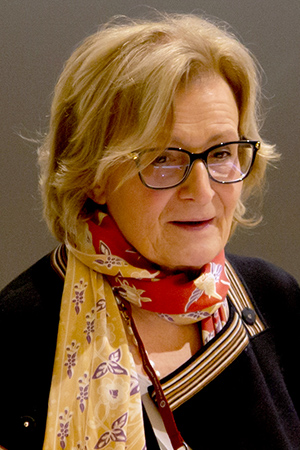
Daniela Rhodes MRC Laboratory of Molecular Biology, Cambridge, United Kingdom; Nanyang Technological University, Singapore
Before joining Nanyang Technological University in Singapore in 2011, Dr. Daniela Rhodes spent her whole research career at the world-renowned MRC Laboratory of Molecular Biology in Cambridge, UK. After studying for a PhD with Nobel Prize winner Aaron Klug, Dr. Rhodes obtained a Research Scientist Position in 1983, followed by tenure in 1987 and Special Appointment in 1994 (equivalent to Full Professor), and served as Director of Studies at from 2006 to 2009. At Nanyang Technological University, she is the Director of the newly funded Nanyang Technological University Institute of Structural Biology. She was elected a Fellow of the Royal Society, member of the European Molecular Biology Organization, member of the Academia Europaea, and is a Fellow of Clare Hall, Cambridge.

Richard J. Roberts New England Biolabs, Ipswich, MA
Dr. Richard J. Roberts is the Chief Scientific Officer at New England Biolabs, Beverly, Massachusetts.
He received a Ph.D. in Organic Chemistry in 1968 from Sheffield University and then moved as a postdoctoral fellow to Harvard. From 1972 to 1992, he worked at Cold Spring Harbor Laboratory, eventually becoming Assistant Director for Research under Dr. J.D. Watson. He began work on the newly discovered Type II restriction enzymes in 1972 and these enzymes have been a major research theme.
Studies of transcription in Adenovirus-2 led to the discovery of split genes and mRNA splicing in 1977, for which he received the Nobel Prize in Medicine in 1993. During the sequencing of the Adenovirus-2 genome computational tools became essential and his laboratory pioneered the application of computers in this area.
DNA methyltransferases, as components of restriction-modification systems are also of active interest and the first crystal structures for the HhaI methyltransferase led to the discovery of base flipping. Bioinformatic studies of microbial genomes to find new restriction systems are a major research focus as is the elucidation of DNA methyltransferase recognition sequences using SMRT sequencing.
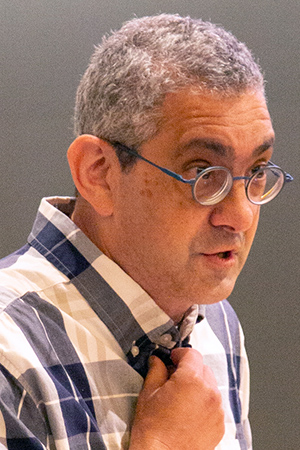
Daniel Rokhsar University of California, Berkeley and Okinawa Institute of Science and Technology, Japan
Dr. Daniel Rokhsar is a professor in the departments of Physics and Molecular and Cell Biology at University of California, Berkeley as well as the Head of the Plant Genomics Program at the Joint Genome Institute of the United States Department of Energy. His research is focused on the origin, evolution, and diversity of animals and plants by combining computational genome analysis, sequence-based genetic methods and comparative developmental biology. In addition to this evolutionary focus, his work on plant genomics is targeted towards the development of improved biofuel feedstocks and understanding and assisting the adaptation of plants to changing environments. Dr. Rokhsar’s current projects include research on the comparative analysis of genomic diversity across animals and their relatives, evolution of nervous systems and animal behavior, and molecular analysis of spiralian development and evolution. Dr. Rokhsar received his PhD in theoretical physics from Cornell University.
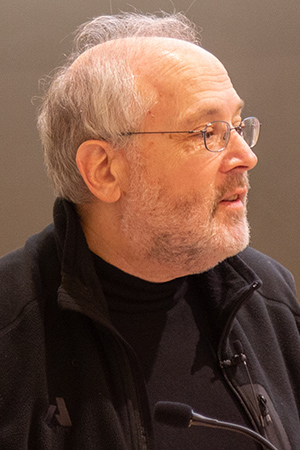
Gerald M. Rubin Howard Hughes Medical Institute, Ashburn, Virginia
Dr. Rubin is the John D. Macarthur Professor of Genetics, emeritus, at University of California, Berkeley and maintains a lab at HHMI’s Janelia Research Campus. He was HHMI vice president and executive director of Janelia from 2000 and 2003 until 2020, respectively. He received his bachelor's degree from the Massachusetts Institute of Technology and then worked at MRC Laboratory of Molecular Biology, earning his PhD in 1974 from the University of Cambridge. He did post-doctoral work with David S. Hogness at the Stanford University School of Medicine and held faculty positions at Harvard Medical School and the Carnegie Institution of Washington before moving to the University of California, Berkeley, in 1983 to assume the John D. MacArthur Professorship. He was appointed an HHMI investigator in 1987. Rubin is a member of the National Academy of Sciences, the National Academy of Medicine, and the American Academy of Arts and Sciences, and a Foreign Member of the Royal Society. He has received numerous awards, including the American Chemical Society Eli Lilly Award in Biological Chemistry, the National Academy of Sciences U.S. Steel Foundation Award in Molecular Biology, and the Genetics Society of America Medal.
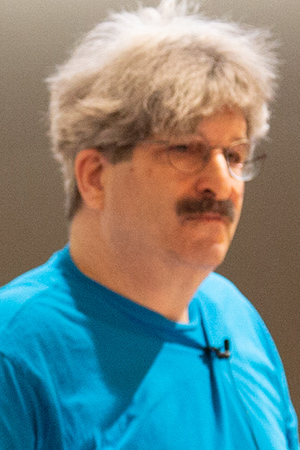
Gary Ruvkun Massachusetts General Hospital, Boston, MA
Dr. Gary Ruvkun is a molecular biologist at Massachusetts General Hospital and a Professor of Genetics at Harvard University Medical School. He received his PhD in Biophysics in 1982 from Harvard University where he investigated bacterial nitrogen fixation genes. His research interests include microRNA and RNA interference mechanisms, bacterial and animal genetic analysis of microbiome interactions, neuroendocrine control of detoxification, immunity, aging, and life on other planets. Some of his honors and awards include the Rosenstiel Award for Distinguished Work in Medical Research, Warren Triennial Prize, Gairdner Foundation International Award, Benjamin Franklin Medal in Life Sciences, and the Louisa Gross Horwitz Prize.

Andrea Scharf Washington University School of Medicine in St. Louis, MO
Andrea Scharf is a post-doctoral Biologist with research focused on the plasticity of biological systems, from cells to populations, to respond to changing environmental conditions. Currently, she is investigating the interplay of the individual traits of C. elegans with their environment that shape population success and the emergent property of population dynamics. She attended University of Düsseldorf in Germany where she received her MS in Biology. She went on to attend Leibniz Research Institute for Environmental Medicine in 2005 and in 2010 she was awarded her PhD. She remained at Leibniz Research Institute for Environmental Medicine until 2015 conducting post-doctoral research. Since 2016, she has been a post-doctoral researcher at Washington University in St. Louis.
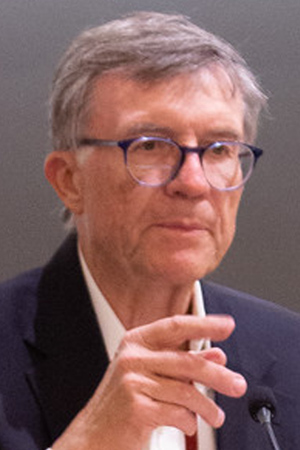
Terry Sejnowski Salk Institute, La Jolla, CA
Terrence Sejnowski is a pioneer in computational neuroscience and his goal is to understand the principles that link brain to behavior. He received his PhD in physics from Princeton University and was a postdoctoral fellow at Harvard Medical School. He was on the faculty at the Johns Hopkins University and he now holds the Francis Crick Chair at The Salk Institute for Biological Studies and is also a Professor of Biology at the University of California, San Diego, where he is co-director of the Institute for Neural Computation and co-director of the NSF Temporal Dynamics of Learning Center. He is the President of the Neural Information Processing Systems (NIPS) Foundation and is the founding editor-in-chief of Neural Computation published by the MIT Press. An investigator with the Howard Hughes Medical Institute, he is also a Fellow of the American Association for the Advancement of Science and a Fellow of the Institute of Electrical and Electronics Engineers. He has received many honors, including the NSF Young Investigators Award, the Wright Prize for interdisciplinary research from the Harvey Mudd College, the Neural Network Pioneer Award from the Institute of Electrical and Electronics Engineers and the Hebb Prize from the International Neural Network Society. He was elected to the Institute of Medicine in 2008, to the National Academy of Sciences in 2010, and to the National Academy of Engineering in 2011.
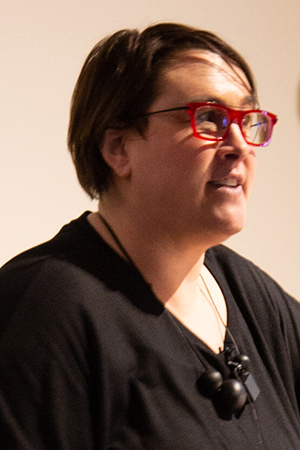
Ahna R. Skop University of Wisconsin-Madison, Madison, WI
Dr. Ahna Skop is a geneticist, artist and a winner of the prestigious Presidential Early Career Awards for Scientists and Engineers. Her lab seeks to understand the molecular mechanisms that underlie cell division during embryonic development using the nematode, C. elegans as a model system. On the UW-Madison campus and in her department, she has established several very successful recruitment and retention programs and served two consecutive terms as the Chair of Equity and Diversity in the College of Agriculture and Life Sciences. She received her Ph.D. in Cell and Molecular Biology at the University of Wisconsin-Madison and conducted her post-doctoral work at University of California, Berkeley. Ahna is a Professor in the Departments of Genetics and an affiliate faculty member in Life Sciences Communication and the University of Wisconsin-Madison Arts Institute at University of Wisconsin-Madison.
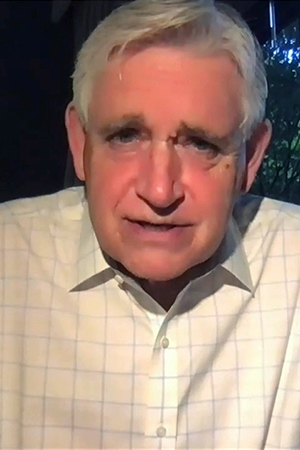
Bruce Stillman Cold Spring Harbor Laboratory
Bruce Stillman is President and Chief Executive Officer of Cold Spring Harbor Laboratory. A native of Australia, he obtained a Bachelor of Science degree with honors at The University of Sydney and a Ph.D. from the John Curtin School of Medical Research at the Australian National University. He then moved to Cold Spring Harbor Laboratory as a Postdoctoral Fellow in 1979 and has been at the Laboratory ever since, being promoted to the scientific staff in 1981. Dr. Stillman was Director of the Cancer Center at Cold Spring Harbor from 1992 to 2016. In 1994, he succeeded Nobel Laureate Dr. James D. Watson as Director of Cold Spring Harbor Laboratory and was appointed President in 2003. He is an elected fellow of The Royal Society, the National Academy of Inventors, the American Academy of Arts and Sciences, and the American Association for the Advancement of Science. He is a member of the National Academy of Sciences. Stillman holds numerous awards and honors. He is the recipient of the Society of Surgical Oncology – American Cancer Society Basic Science Award and Lecture and the Alfred P. Sloan Prize, General Motors Cancer Research Foundation. In 2019, he received the Canada Gairdner International Award and the Heineken Prize in 2020.
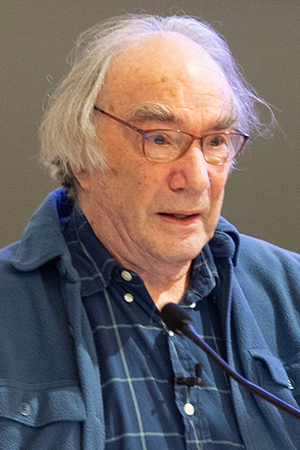
Anthony O. Stretton University of Wisconsin, Madison, Wisconsin
Dr. Antony Stretton is a neuroscientist, faculty member of the Neuroscience Training Program, and a Professor of Zoology at the University of Wisconsin-Madison. He received his PhD from University of Cambridge and conducted his post-doctoral research between 1961 and 1971 with Dr. Sydney Brenner. Some of his awards and honors include the Distinguished Teaching Award: Chancellor’s Awards at the University of Wisconsin-Madison and Fellowship in the American Association for the Advancement of Science.

Antoinette Sutto Cold Spring Harbor Laboratory, NY
Antoinette Sutto is a Historian at Cold Spring Harbor Laboratory’s Library and Archives. Her work includes exploring the archival collections at Cold Spring Harbor Laboratory and writing articles for our website. Through this, she introduces scholars and visitors to the collections at CSHL and facilitates navigation through the wealth of historical material that is available. She received her BA from Harvard University in History and went on to pursue her PhD in the same subject matter. In 2018, she earned a certificate in Translation Practice, Language Interpretation and Translation from New York University. In 2021, she received another certificate in software localization. She conducted her post-doctoral research at Vanderbilt University from 2009 to 2012. Following her time as a post-doctoral researcher, she accepted a position at University of Mississippi as an Assistant Professor of History. She served as a German translator between 2018 and 2021 before she accepted the position as Historian at CSHL.
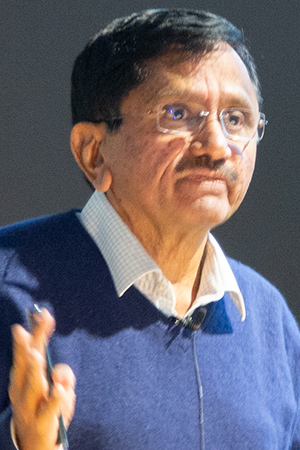
Byrappa Venkatesh Institute of Molecular and Cell Biology, Singapore
Byrappa Venkatesh obtained his PhD degree from the National University of Singapore. He pursued post-doctoral studies under the supervision of Dr. Sydney Brenner at the Medical Research Council, Cambridge, UK where he started working on the pufferfish genome. He returned to Singapore in 1992 and continued working on the pufferfish genome at the Institute of Molecular and Cell Biology. Venkatesh is currently a Professor and Research Director in Institute of Molecular and Cell Biology and an adjunct Professor of the Department of Pediatrics, National University of Singapore. In addition, he is a chairperson of the 'Genome 10K' project which aims to catalogue genomes of 10,000 vertebrates. In 2004, Venkatesh was awarded Singapore’s prestigious “National Science Award”.
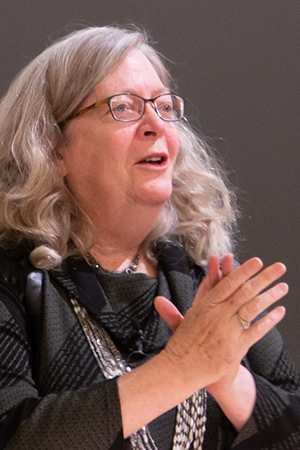
Anne Villeneuve Stanford University, CA
Anne Villeneuve is a geneticist recognized for her research on the mechanisms governing chromosome inheritance during meiosis, the specialized cell division program that gives rise to sperm and eggs. Her long-standing interest in sexual reproduction began during her PhD research on sex determination and dosage compensation in the Department of Biology at MIT. She moved to Stanford University in 1989 as an Independent Fellow in the Department of Developmental Biology, where she initiated her research on meiosis. Dr. Villeneuve joined the Stanford faculty in 1995 and is currently a Professor of Developmental Biology and Genetics in the Stanford University School of Medicine. Dr. Villeneuve has served as Secretary of the Genetics Society of America and is a Research Professor of the American Cancer Society. She was elected to the American Academy of Arts and Sciences in 2016 before being elected to the National Academy of Sciences in 2017.
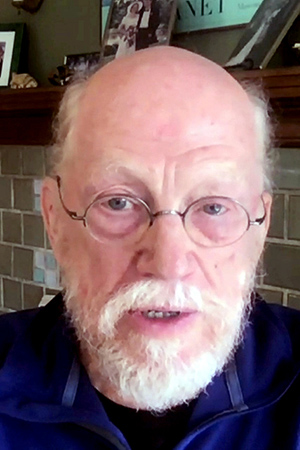
Robert H. Waterston University of Washington, Seattle, WA
Robert Waterston received his bachelor's degree in engineering from Princeton University (1965) and both an M.D. and a Ph.D. in pathology from the University of Chicago (1972). After a postdoctoral fellowship at the Medical Research Council Laboratory of Molecular Biology in Cambridge, he joined the Washington University faculty in 1976 where he is the James S. McDonnel Professor of Genetics, head of the Department of Genetics, and director of the School of Medicine’s Genome Sequencing Center, which he founded in 1993. In early 2003 Dr Waterston took on the role of Chair of the department of Genome Sciences at the University of Washington. He is a member of the National Academy of Sciences, was a recipient of the International Gairdner Award, the Genetics Society of America’s Beadle Award, the Dan David Prize, and the Alfred P. Sloan Award from the GM Cancer Research Foundation.

John White University of Wisconsin, Madison
Dr. John White is a Professor Emeritus of Anatomy and Molecular Biology at the University of Wisconsin-Madison. He went on to complete his PhD at University of Cambridge in 1975 for work on computer aided reconstruction of the nervous system of C. elegans, supervised by Dr. Sydney Brenner. After working in the Library of Molecular Biology, Dr. White moved to the University of Wisconsin-Madison in 1993. He received the Queen’s Award for Technology in 1991, the William Bate Hardy Prize of the Cambridge Philosophical Society in 1993, Royal Society Mullard Award in 1994, Rank Prize for opto-electronics in 1995, and the ABRF Award for Outstanding Contributions to Biomolecular Technology in 2015. He was also elected member of the European Molecular Biology Organization in 1994 and elected Fellow of the Royal Society in 2005.

Bill Wood University of Colorado, Boulder
Dr. Bill Wood is a Distinguished Professor Emeritus at University of Colorado, Boulder; a developmental geneticist, and biology educator. He received his AB in Chemistry from Harvard University in 1959 and went on to attend Stanford University for his PhD studies in Biochemistry. Before he took the position of Professor of MCD Biology at University of Colorado, Boulder; he served as a Professor of Biology at California Institute of Technology. His research interests include Genetic control and molecular biology of embryonic axis formation and pattern formation in development of the nematode C. elegans. Dr. Wood boasts many honors, some of which include Bruce Alberts Award for Distinguished Contributions to Science Education, Viktor Hamburger Outstanding Educator Award and Arthur Kornberg and Paul Berg Lifetime Achievement Award from Stanford University Medical School. He is a member of American Association for the Advancement of Science, American Society for Cell Biology, Genetics Society of America, Society for Developmental Biology and Society for the Advancement of Biology Education Research, which he is also a founding member for.
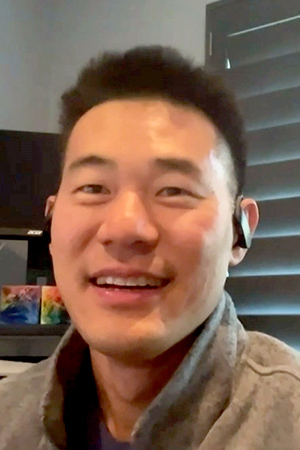
Gene Yeo University of California San Diego, La Jolla, CA
Dr. Gene Yeo is a Professor of Cellular and Molecular Medicine at the University of California, San Diego, a founding member of the Institute for Genomic Medicine and member of the University of California, San Diego Stem Cell Program and Moores Cancer Center. Dr. Yeo has a BSc in Chemical Engineering and a BA in Economics from the University of Illinois, Urbana-Champaign, a Ph.D. in Computational Neuroscience from Massachusetts Institute of Technology and an MBA from the University of California, San Diego Rady School of Management. Dr. Yeo is on the Editorial Boards of the journals Cell Reports and Cell Research. Dr. Yeo is a recipient of Alfred P Sloan Fellowship in recognition of his work in computational molecular biology (2011) and the inaugural Early Career Award from the International RNA Society (2017). Dr. Yeo was a recipient of the Lee Kuan Yew Graduate Scholarship (2000), National Research Foundation Visiting Investigatorship Award (2017), a Blavatnik National Finalist (2018 & 2019) and Xconomy Award Winner for ‘Big Idea’ (2019). Gene Yeo is a co-founder of several biotech companies. He also serves or had served on several scientific advisory boards.
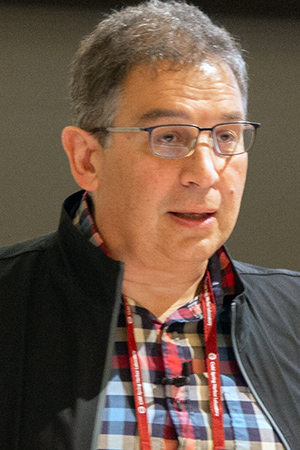
Rafael Yuste Columbia University, New York
Rafael Yuste is Professor of Biological Sciences and Neuroscience at Columbia University. He was born in Madrid, where he obtained his M.D. at the Universidad Autónoma. After a brief period in Sydney Brenner's laboratory in Cambridge, UK, he performed Ph.D. studies with Larry Katz in Torsten Wiesel’s laboratory at Rockefeller University and was a postdoctoral student of David Tank at Bell Labs. In 1996 he joined the Department of Biological Sciences at Columbia University, where he is Full Professor. In 2005 he became HHMI Investigator and co-director of the Kavli Institute for Brain Circuits and in 2014 Director of the Neurotechnology Center at Columbia. Yuste is interested in the structure and function of cortical circuits, the biophysical properties of dendritic spines and the pathophysiology of cortical diseases such as epilepsy and schizophrenia. Yuste has obtained many awards, including New York City Mayor's, the Society for Neuroscience's Young Investigator and the NIH Director Pioneer Awards. Finally, he led the group of researchers who proposed the Brain Activity Map Project, recently sponsored by the White House’s BRAIN initiative.
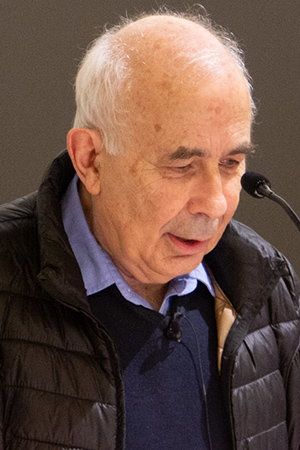
Semir Zeki University College London, London, UK
Dr. Semir Zeki is a neuroscientist whose early work on the visual cortex showed how the brain processes features such as color and movement through distinct brain areas. His interest in art and vision has led him to explore the brain mechanisms underlying human responses to beauty, a field for which he coined the term ‘neuroesthetics’. He was educated at University College London where he was Henry Head Research Fellow of the Royal Society before being appointed Professor of Neurobiology, then Neuroesthetics. He is also a member of the Academia Europaea, Member of the European Academy of Sciences and Arts, Foreign Member of the American Philosophical Society, Founding Fellow of the Academy of Medical Sciences, Fellow of University College London, and Honorary Member of the Physiological Society.
